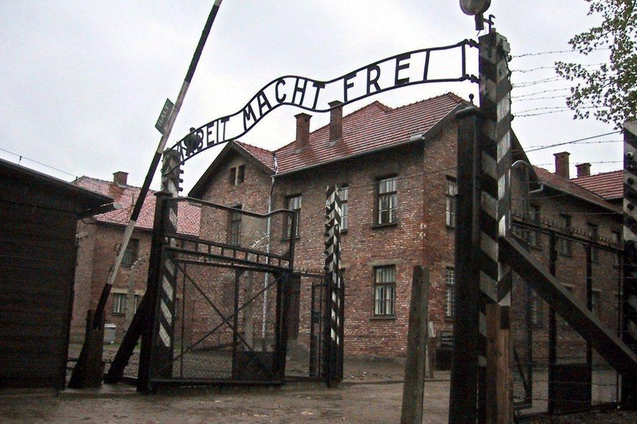“Work sets you free”: The entrance to the Auschwitz extermination camp. After the Second World War many Nazis took refuge in Latin America. (Keystone / Frank Leonhardt) A list of 12,000 Nazis who are said to have lived in Argentina from the 1930s onwards has been found in Buenos Aires. Many of the Nazi sympathisers reportedly paid money into one or more accounts at Schweizerische Kreditanstalt, which later became Credit Suisse. “We believe it is very probable that these dormant accounts hold monies looted from Jewish victims under the Nuremberg Aryanization laws of the 1930s,” said the Simon Wiesenthal Center, a Jewish human rights organisation, in a statementexternal link on Monday. Zurich-based Credit Suisse points out that between 1997 and 1999 an independent
Topics:
Swissinfo considers the following as important: 3.) Swiss Info, 3) Swiss Markets and News, Featured, newsletter, Politics
This could be interesting, too:
Investec writes The Swiss houses that must be demolished
Claudio Grass writes The Case Against Fordism
Nachrichten Ticker - www.finanzen.ch writes Die Performance der Kryptowährungen in KW 9: Das hat sich bei Bitcoin, Ether & Co. getan
Nachrichten Ticker - www.finanzen.ch writes Wer verbirgt sich hinter der Ethereum-Technologie?

“Work sets you free”: The entrance to the Auschwitz extermination camp. After the Second World War many Nazis took refuge in Latin America. (Keystone / Frank Leonhardt)
A list of 12,000 Nazis who are said to have lived in Argentina from the 1930s onwards has been found in Buenos Aires. Many of the Nazi sympathisers reportedly paid money into one or more accounts at Schweizerische Kreditanstalt, which later became Credit Suisse.
“We believe it is very probable that these dormant accounts hold monies looted from Jewish victims under the Nuremberg Aryanization laws of the 1930s,” said the Simon Wiesenthal Center, a Jewish human rights organisation, in a statementexternal link on Monday.
Zurich-based Credit Suisse points out that between 1997 and 1999 an independent commission of experts investigated it and 60 other Swiss banks with the aim of identifying accounts that could have belonged or probably did belong to victims of Nazi persecution.
The commission concluded that its investigation “was unique in its kind … [and] was the fruit of long and painstaking work by a large number of forensic specialists. It allowed us to draw up as complete and exhaustive a picture as possible of the Swiss accounts of the victims of Nazi persecution, taking into account the circumstances,” Credit Suisse told swissinfo.ch.
The bank added that it would look into the matter again.
Chance find
The Wiesenthal Center said in its statement that an original copy of the list of 12,000 names was found in an old storage room by Argentine researcher Pedro Filipuzzi while he was working at a former Nazi headquarters in Buenos Aires.
During the 1930s, the pro-Nazi military regime of President José Félix Uriburu and of his successor Agustín Pedro Justo welcomed a growing Nazi presence in Argentina, the organisation said.
In 1938, Agustín Pedro Justo was replaced by anti-Nazi President Roberto Ortiz, who established the “Special Commission to Research Anti-Argentine Activities”, principally to de-Nazify Argentina.
The Wiesenthal Center said that until 1938, there was an official figure of 1,400 members of the NSDAP/AO (the German National Socialist Party/Foreign Organization), based in Argentina, with 12,000 supporting members of the cover-up “Unión Alemana de Gremios” (the German Union of Syndicates) and an additional 8,000 affiliated to other Nazi organisations.
“These included such German companies as IG Farben (the supplier of Zyklon-B gas used to exterminate Jews and other victims of Nazism) and financial bodies such as the Banco Alemán Transatlántico and the Banco Germánico de América del Sur. These two banks apparently served for Nazi transfers on the way to Switzerland,” said Shimon Samuels, the centre’s director for international relations.
Dozens of Nazi leaders responsible for the Holocaust, including Josef Mengele and Adolf Eichmann, took refuge at the end of the war in various South American countries, including Argentina.
(Adapted by Thomas Stephens),Tags: Featured,newsletter,Politics
